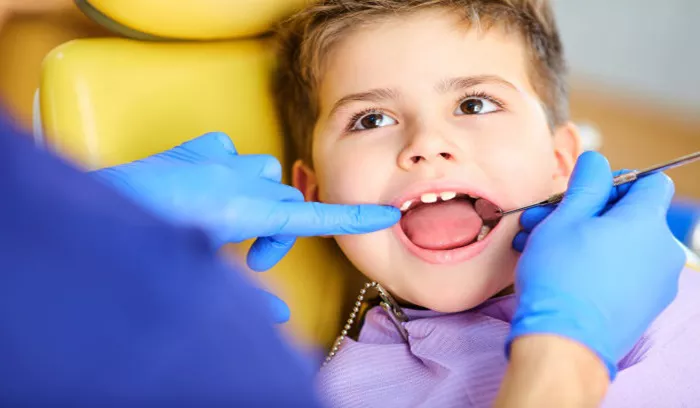Children’s dental care is a critical aspect of their overall health and well-being. Establishing good oral hygiene habits early can lead to a lifetime of healthy teeth and gums. In this article, we will explore the importance of children’s dental care, the common dental issues they face, the role of parents and caregivers, and how to ensure that children receive the best possible dental care.
Understanding the Importance of Children’s Dental Care
1. Development of Healthy Habits
One of the primary reasons children’s dental care is essential is that it helps them develop healthy habits. When children learn to take care of their teeth from a young age, they are more likely to continue these practices into adulthood. Good habits include:
Brushing teeth twice a day: Teaching children to brush their teeth in the morning and before bed helps prevent cavities and gum disease.
Flossing daily: Flossing removes food particles and plaque from between teeth, where a toothbrush may not reach.
Regular dental visits: Routine check-ups help monitor dental health and catch potential problems early.
2. Prevention of Dental Issues
Proper dental care can prevent many common dental issues that children face. Some of these issues include:
Tooth Decay
Tooth decay is one of the most prevalent childhood diseases. It occurs when bacteria in the mouth produce acids that eat away at tooth enamel. Regular brushing, flossing, and dental check-ups can help prevent cavities.
Gum Disease
Gum disease, or gingivitis, can affect children just like adults. It is caused by plaque buildup on the teeth and can lead to swollen, bleeding gums. Good oral hygiene practices can prevent gum disease from developing.
Misalignment of Teeth
Many children experience misalignment of their teeth, which can lead to issues with chewing and speaking. Early dental visits allow for monitoring of tooth development and may lead to orthodontic treatment if necessary.
The Role of Pediatric Dentists
1. Specialized Training
Pediatric dentists are specialists who focus on the dental needs of children. They complete additional training after dental school to understand the unique challenges that come with treating young patients. This training allows them to provide the best care for children.
2. Creating a Comfortable Environment
Pediatric dentists strive to create a child-friendly atmosphere. They use smaller dental tools and often have colorful offices with toys and activities. This environment helps reduce anxiety and makes dental visits more enjoyable for children.
3. Education and Prevention
Pediatric dentists play a crucial role in educating children and their parents about oral health. They provide guidance on proper brushing and flossing techniques and discuss the importance of a healthy diet. This education helps children understand the significance of dental care.
Common Dental Issues in Children
1. Cavities
Cavities are holes in the teeth caused by decay. They are common in children due to their diets, which often include sugary snacks and drinks. Regular dental visits and good oral hygiene can help prevent cavities.
2. Early Tooth Loss
Children may lose their baby teeth early due to decay or injury. Early tooth loss can lead to misalignment of permanent teeth, making orthodontic treatment necessary later on.
3. Orthodontic Problems
Many children require braces or other orthodontic treatments to correct misaligned teeth. Early evaluation by a dentist can identify these issues and determine the best time to begin treatment.
4. Dental Trauma
Children are prone to dental injuries, especially during sports or play. Injuries can lead to chipped or knocked-out teeth. Prompt dental care is essential to address these issues and prevent further complications.
The Role of Parents in Children’s Dental Care
1. Establishing Routines
Parents play a vital role in establishing dental care routines for their children. This includes:
Supervising brushing and flossing: Young children may need help to brush and floss effectively. Parents should supervise and assist as needed.
Setting a schedule for dental visits: Regular dental check-ups should be scheduled every six months to monitor dental health.
2. Encouraging Healthy Eating Habits
Diet plays a significant role in oral health. Parents can encourage healthy eating habits by:
Limiting sugary snacks and drinks: Reducing sugar intake helps prevent cavities.
Promoting nutritious foods: Foods rich in calcium, vitamins, and minerals support healthy teeth and gums.
3. Leading by Example
Children learn by watching their parents. By practicing good oral hygiene and maintaining regular dental visits, parents can set a positive example for their children.
Tips for Ensuring Good Dental Care for Children
1. Start Early
Dental care should begin as soon as a child’s first tooth appears. Parents should clean the tooth with a soft, damp cloth. Once the child is old enough, introduce a soft-bristled toothbrush and fluoride toothpaste.
2. Make Dental Visits Fun
To help reduce anxiety, make dental visits a positive experience. Talk to your child about what to expect at the dentist and emphasize the importance of taking care of their teeth.
3. Use Positive Reinforcement
Encourage your child to take care of their teeth by using positive reinforcement. Praise them for good brushing and flossing habits, and consider small rewards for maintaining a consistent dental care routine.
4. Educate About Oral Health
Teach your child about the importance of oral health. Explain how brushing and flossing help prevent cavities and keep their smile bright. Use age-appropriate books or videos to make learning fun.
Conclusion
Children’s dental care is vital for ensuring their overall health and well-being. By establishing healthy habits early, preventing dental issues, and working with pediatric dentists, parents can help their children maintain healthy teeth and gums throughout their lives.
Pediatric dentists play a crucial role in providing specialized care and education, while parents can support their children’s dental health by establishing routines, encouraging healthy eating, and leading by example. Together, they can create a foundation for a lifetime of good oral health.
In summary, investing in children’s dental care is an investment in their future. By prioritizing oral health from a young age, we can help children develop healthy smiles that last a lifetime.
Related topics:

